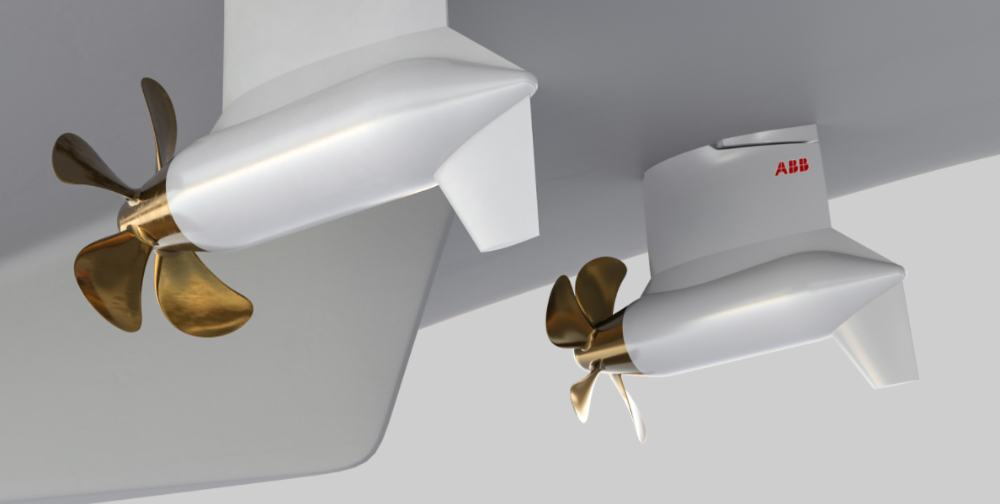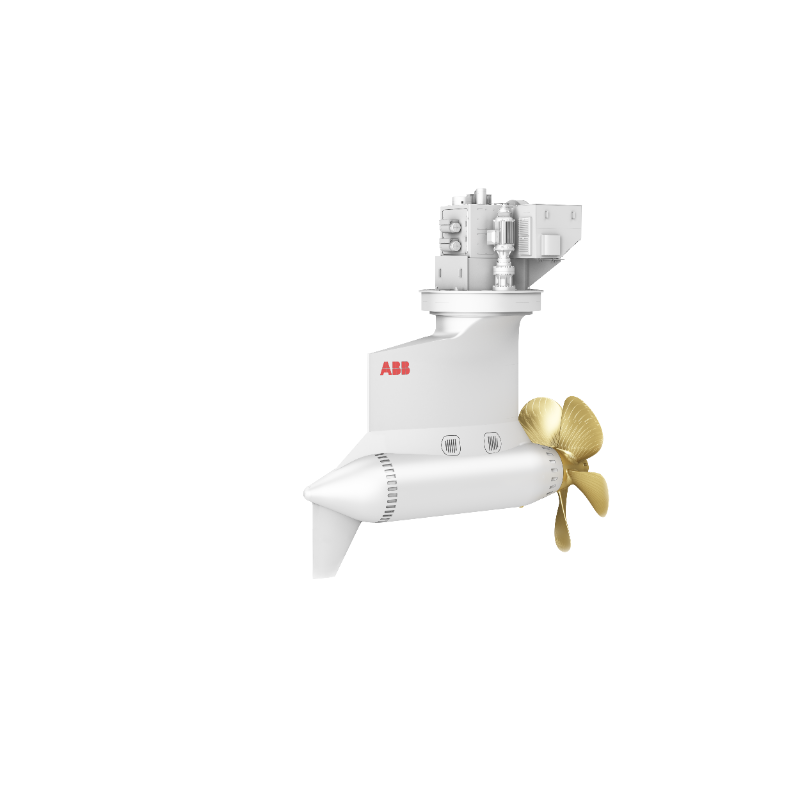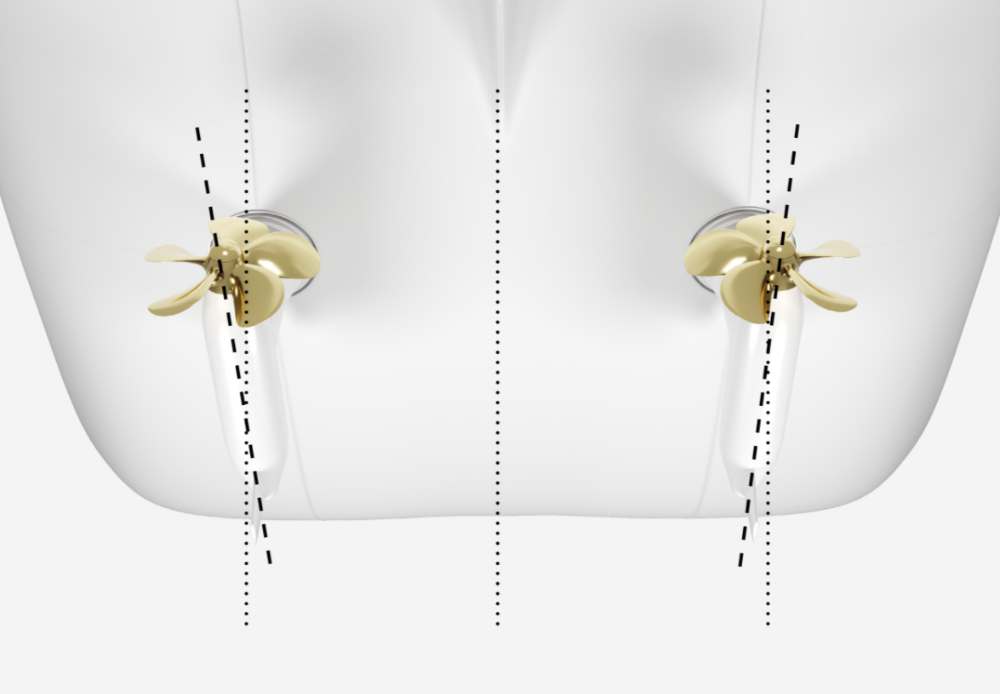Azipod propulsion and toe angle optimisation
ABB develops a digital solution to drive efficiency…
The trend towards large scale pod-drive propulsion systems has come from the cruise ship market, where the technology has been developing steadily for over 20 years. The need for precision manoeuvrability and efficiency in the cruise ship industry drove the innovation behind the technology. Azipods (registered trademark of ABB), and pod-drive systems more broadly, have now become a common feature of new-build design. Since the first Azipods were installed onboard superyachts, with the 90m Lürrsen Ice (ex Air) and the 65m Benetti Ambrosia III, in 2005 and 2006 respectfully, demand and application has grown.
As emission restricted zones proliferate, and large yachts are increasingly unable to anchor in large sections of the Mediterranean, the ability to run hybrid-electric propulsion and dynamic positioning with a pod-drive system such as Azipods, presents an option with a growing appeal for the larger yacht fleet. Providing direct thrust in any direction removes the need for a stern thruster, both assisting maneuvrability and creating an improved drag coefficient for the hull design. As highlighted in the 2017 RINA Megayacht Whitepaper, Azipods provided a 9 per cent improvement in propulsive efficiency, across the case studied vessels.
In conjunction with adherence to environmental restrictions, the industry is striving toward greater efficiency of operation, and incremental gains and optimisation of existing systems are key drivers of real benefits. Literally streamlining a system is a great place to start.
ABB has announced a new digital solution: Ability OptimE - Toe Angle Optimisation for Propulsion; a system to complement existing Azipod installations, designed to increase efficiency. According to ABB, The system operates by continuously adjusting the starting angle to achieve continuous optimal flow through the propulsors.
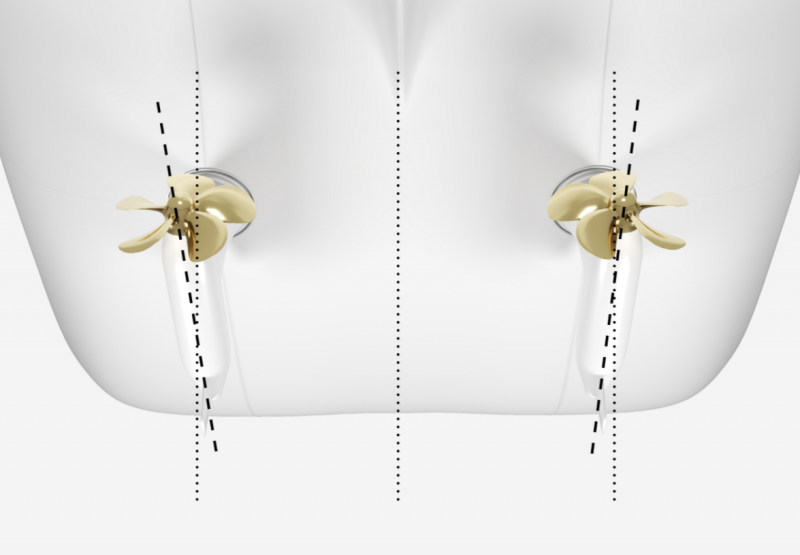
The ‘toe angle’, as demonstrated above, is a principle that many of us are more familiar with with respect to the alignment of the wheels on our cars, however, it has significant implications for the hydrodynamic efficiency of a superyacht with Azipods. To interrogate what this means, and how it can assist the efficiency of a superyacht with Azipods, SuperyachtNews speaks with Jukka Maattanen, Global Product Manager at ABB.
“The working principles of ABB Ability OptimE are based on collecting vessel data, such as Azipod propulsion data, vessel speed data and environmental conditions, and processing it; deriving the effect of the Azipod toe angle to the propulsion power of the vessel to maintain speed through water, and configuring it specifically for the vessel”
These small and continuous adjustments, relative to a high-speed data stream, are what ABB see as key to increasing the efficacy of the system. As Maattanen continued. “Once the toe angle that minimises the propulsion power has been determined, the engine will start running with a lower engine load, which results in consuming less fuel.”
ABB has calculated the fuel-saving to be up to 1.5 per cent. There is often a fixation on larger numbers than 1.5 per cent with respect to savings in efficiency, but when extended over an average scope of yachts operational lifetime, it is a significant number. According to Maatanen, the development is partly in response to a shift in the attitudes of owners. “We are aware that superyacht owners are increasingly choosing solutions that support environmentally conscious operations, and we are pleased to be able to introduce ABB Ability OptimE, that further optimizes the ability of ABB’s Azipod propulsion system to save fuel and cut emissions.”
The Ability OptimE presents a digital solution, that can save the vessels operational costs while reducing the raw environmental impact associated with emissions. Suitable both for new builds and retrofitting, ABB Ability OptimE is part of ABB Marine & Ports ‘Bridge to Propeller’ integrated solutions for ships, which include bridge control, sensors, digital reporting, automation, and propulsion technology.
Profile links
NEW: Sign up for SuperyachtNewsweek!
Get the latest weekly news, in-depth reports, intelligence, and strategic insights, delivered directly from The Superyacht Group's editors and market analysts.
Stay at the forefront of the superyacht industry with SuperyachtNewsweek
Click here to become part of The Superyacht Group community, and join us in our mission to make this industry accessible to all, and prosperous for the long-term. We are offering access to the superyacht industry’s most comprehensive and longstanding archive of business-critical information, as well as a comprehensive, real-time superyacht fleet database, for just £10 per month, because we are One Industry with One Mission. Sign up here.
Related news
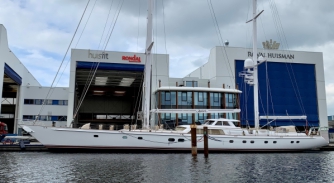
S/Y Juliet undergoes hybrid conversion
Under sail, electrical power will be generated by the rotation of the propeller
Fleet

Let’s face it, innovation is hard
But it is also essential, says John Venables, president & CEO of Naiad Dynamics
Technology
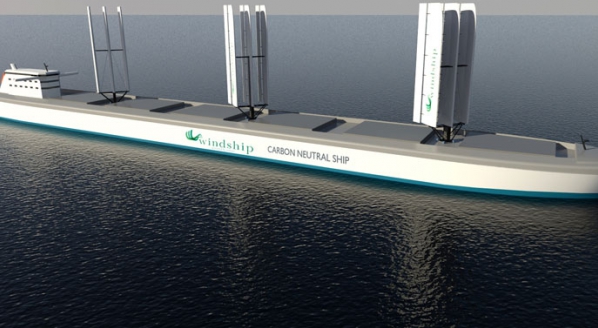
Wind-assisted propulsion systems
Martin Richter, Ship Type Expert Yachts at DNV GL, highlights the opportunity that an infinite resource presents
Design
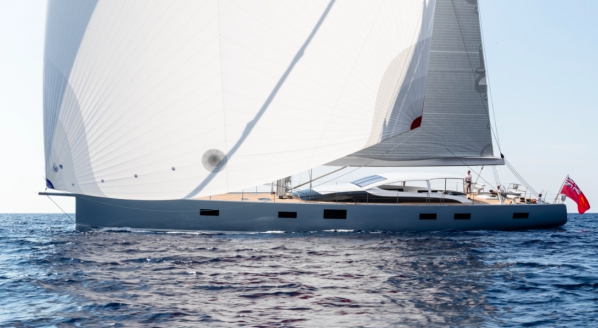
Revolutionising on-board power
Baltic's Kim Kolam and Kenneth Nyfelt explore a more sustainable future for the superyacht industry
Technology
Related news
S/Y Juliet undergoes hybrid conversion
4 years ago
Let’s face it, innovation is hard
4 years ago
Wind-assisted propulsion systems
4 years ago
Revolutionising on-board power
4 years ago
NEW: Sign up for
SuperyachtNewsweek!
Get the latest weekly news, in-depth reports, intelligence, and strategic insights, delivered directly from The Superyacht Group's editors and market analysts.
Stay at the forefront of the superyacht industry with SuperyachtNewsweek


